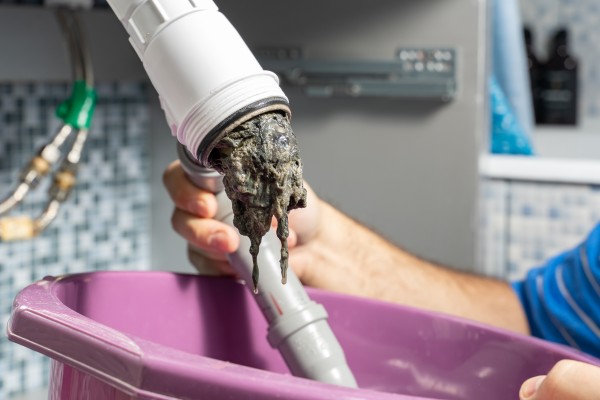Is disease training heading down the drain?

The plumbing industry plays a vital role in protecting society from waterborne disease. Daniel Williamson finds out whether the industry is doing enough to prepare the next generation of plumbers.
“They should be teaching disease control and prevention at TAFEs. It’s serious, and plumbers simply don’t know enough about the topic.”
These are the words of Green Drain’s vice president of global sales, Eddie Bocchino, a plumbing professional who’s passionate about stronger disease control measures in the industry.
His frustration isn’t with the quality of plumbing work, but rather the blind spots. The bugs, both literal and microbial, that could slip through the cracks, even when an installation is done to code. And since COVID-19 brought global attention to how disease can spread through built environments, it’s safe to say that plumbing plays a crucial role in public health.
“Wherever there’s water, there’s bacteria. Plumbers are on the frontline, but often they don’t understand the connection between what’s in the pipes and the potential secondary infections they cause,” Eddie says.
Sparks+Partners Consulting Engineers managing director and senior hydraulic and fire engineer, Leon Dimino, says he regularly sees the downstream effects of plumbing practices that prioritise structure over sanitation.
“We see this in all types of projects including aged care, healthcare and hospitality. Disease risks from drainage are rarely part of the early design conversation. But they should be,” Leon says.
The major issue sprouting from plumbing products is biofilm, a slimy layer of bacteria inside pipes, as Eddie explains. This film can protect pathogens until they become free-floating, at which point they can be aerosolised from drains, showers or basins. This is responsible for around 20% of hospital-acquired infections, costing healthcare systems millions in extended stays and treatment.
Disease prevention is considered during design, but mostly in narrow terms like backflow prevention and warm water system management, according to Leon. The deeper “why” behind such measures is rarely taught.
While engineers may encounter disease prevention concepts through technical bulletins or independent research, there aren’t enough dedicated hydraulic services training currently on offer to plumbers and installers through TAFE NSW, according to Sparks+Partners consultant Miriam Sheppard.
TAFE NSW plumbing teacher, John Chaumont, disagrees, saying that disease prevention is addressed across several units in Certificate III, Certificate IV and the Diploma of Hydraulic Services. Students learn about waterborne disease risks, drainage hygiene and pathogen awareness, as well as preventative measures for Legionella.
“The training of plumbers in the protection of the drinking water supply and the correct installation of sanitary waste systems protects the health of the public. It reduces the risk of waterborne and other diseases developing in the community,” he says.
“Students learn about potential pathogens in sewage, hot water storage requirements to prevent Legionella and design practices that minimise stagnant water.”
TAFE NSW follows nationally-endorsed training packages developed by BuildSkills Australia in consultation with plumbing, water and health advisory bodies.
“As an RTO, TAFE NSW is bound to deliver the nationally approved units of competency. These units already include drainage hygiene, awareness of pathogens in sewage and preventive measures for waterborne diseases,” John says.
He acknowledges that there is scope to expand training as awareness increases, particularly as building-related health concerns continue to grow. To help push this along, Leon suggests that plumbing standards adopt the model that is used in fire protection codes, where an “informative” section explains the reasoning behind the requirements.
“If you just say: ‘Put a valve here,’ people will do it. But they won’t understand why it matters. You need both,” he says.
Eddie says that reactive plumbing is costly and less effective than preventative approaches.
“Cutting costs or corners in plumbing creates problems down the track. Being reactive costs more than being preventative,” he says.
Whether a government body, standards authority or industry group, all three industry voices believe there’s a need for a central champion to coordinate disease prevention efforts.
“Even the best systems will fail if they’re not maintained. Ongoing facilities management is critical,” Miriam says. Green Drain offers a range of solutions to this very issue, including a one-way valve that allows water and debris to pass down but blocks bacteria, gases and pests from coming back up. SGS, a global testing, inspection and certification company, showed 99.9% efficacy, even against extremely small viruses.
The importance of such measures is increasingly being recognised overseas. In Sao Paulo, Brazil, for example, the government is mandating the installation of one-way valves in every drain to reduce transmission risks.
With COVID-19 highlighting the role of built environments in disease spread, the plumbing industry can play a vital role in stopping the spread of harmful viruses and diseases.
